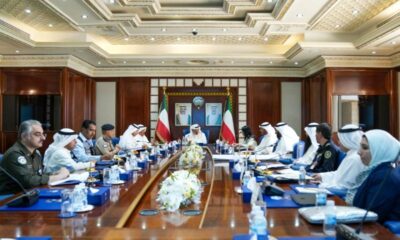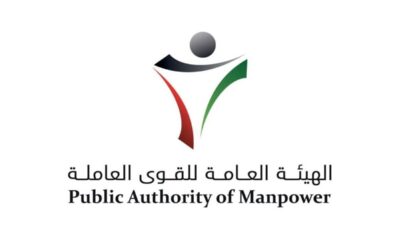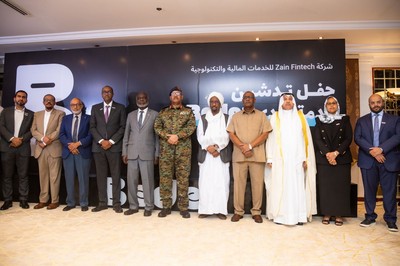KUWAIT / SUDAN, Apr 17: Zain Fintech, the financial services arm of Zain Group, a leading provider of innovative technologies and digital lifestyle communications operating in eight markets across the Middle East and Africa, has launched the ‘Bede’ Digital Wallet in Sudan.
The safe and secure platform will empower Zain customers in Sudan to carry out a wide range of financial transactions directly via their mobile phones, without the need for a traditional bank account or card. Significantly, the service is designed to work across different phone types, including basic feature and smart phones, catering for the needs and requirements of the Sudanese community.
The initial launch phase of the service includes core transactions such as money transfers, airtime top-ups, bill payments, merchant purchases, and cash deposits and withdrawals through a broad network of certified agents operating across neighborhoods and market locations.
The launch ceremony held in Port Sudan was attended by representatives of the Sovereign Council, federal and state ministries, ambassadors, Zain management as well as industry specialists, banking partners, and media representatives.
Malek Hammoud, Zain Group Chief Investment and Digital Officercommented, “The launch of ‘Bede’ marks a major leap towards achieving digital transformation, enhancing financial inclusion, and empowering families, women and youth in Sudan. The wallet’s role is to simplify everyday financial interactions and support citizens’ daily lives. Bede has already been successfully deployed in Bahrain and the dynamic platform has gained a strong reputation for its efficiency, ease of use, and high reliability. We expect to replicate this performance in Sudan and other Zain markets.”
Hammoud continued, “Bede aims to allow everything to be made in the palm of one’s hand, cateringto consumers’ lifestyles and emerging demands beyond basic telecom services. The introduction of Bede in Sudan represents a major step in Zain’s strategic ‘4WARD-Progress with Purpose’ aspirations to expand its regional leadership in the fintech arena supported by our footprint, customer base, and leading technologies.”
The rollout of Bede in Sudan is set to occur in three phases. The first involves the initial offer of the service, while the second phase incorporates its integration with additional banks in Sudan and the addition of services including electricity purchases and access to various government transactions. The third phase will introduce banking services, international remittance services, savings and financing products, and full interoperability with all banks operating in Sudan.
Bede operates under robust strategic partnerships and in full alignment with the policies of the Central Bank of Sudan, which regulates and supervises digital wallet activities through clear legal frameworks and governance policies. Several banksoversee the management of Bede’s trust accounts, ensuring accurate settlements and transparent financial reporting.
Bede complies with national standards for anti-money laundering, anti-corruption, customer data protection, and financial transparency, with the wallet also offering a secure and integrated digital financial experience that prioritizes data security and user privacy.
More on Bede
The core value of Bede is based on the belief that everyone deserves equal opportunities to achieve their full potential, and Zain is committed to leveling the playing field for all individuals.
The impact of Bede inSudanwill go beyond convenience and efficiency. It is designed with inclusivity at its core, ensuring that it is accessible and beneficial to everyone, whether the individual is looking to transfer money to their loved ones, purchase an item or manage their day-to-day expenses more efficiently.
Bede represents another offering in Zain’s mission to provide “meaningful connectivity” and ‘financial inclusion’ to communities across all the markets in which it operates. For more, please visit https://bede.sd/
The Bede name and logo
Bede stems from the Arabic meaning of “in my hand”, hence the customers’ freedom to manage their financials, the way they desire, in their own hands. The brand’s colors are inspired by a human approach which translates to a friendly and approachable personality. The primary colors are black and white with injected bright and playful colors which focus on the positive energy of banking and the human element of the brand that offers a clean and direct approach. With its brand slogan “When you get more, you do more”, Bede believes in providing the tools and solutions that allow everyone a level playing field to be able to achieve and go as far as possible.
The Zain Fintech umbrella
As the financial services arm of Zain Group and playing a key part of Zain’s ‘4WARD’ strategy by introducing and overseeing fintech services across the company’s Middle East and African footprint, Zain Fintech focuses on rolling out innovative products and services related to payments, remittances, credit cards and micro-finance within the Zain ecosystem and beyond. Other entities championed by Zain Fintech include Bede in Bahrain, Zain Cash in Iraq and Jordan, and Tamam in Saudi Arabia. Zain aims to roll-out Bede services in Kuwait soon, subject to regulatory approvals.
Innovation and investing in viable digital services such as the fast growing and much needed fintech sector is critical to Zain’s sustained evolution and success in providing the communities it serves with appealing and much needed digital lifestyle services.

 Business13 hours ago
Business13 hours ago
 Latest News23 hours ago
Latest News23 hours ago
 Latest News19 hours ago
Latest News19 hours ago
 Business4 hours ago
Business4 hours ago
 Latest News20 hours ago
Latest News20 hours ago
 Business12 hours ago
Business12 hours ago
 Latest News24 hours ago
Latest News24 hours ago
 Latest News18 hours ago
Latest News18 hours ago



















